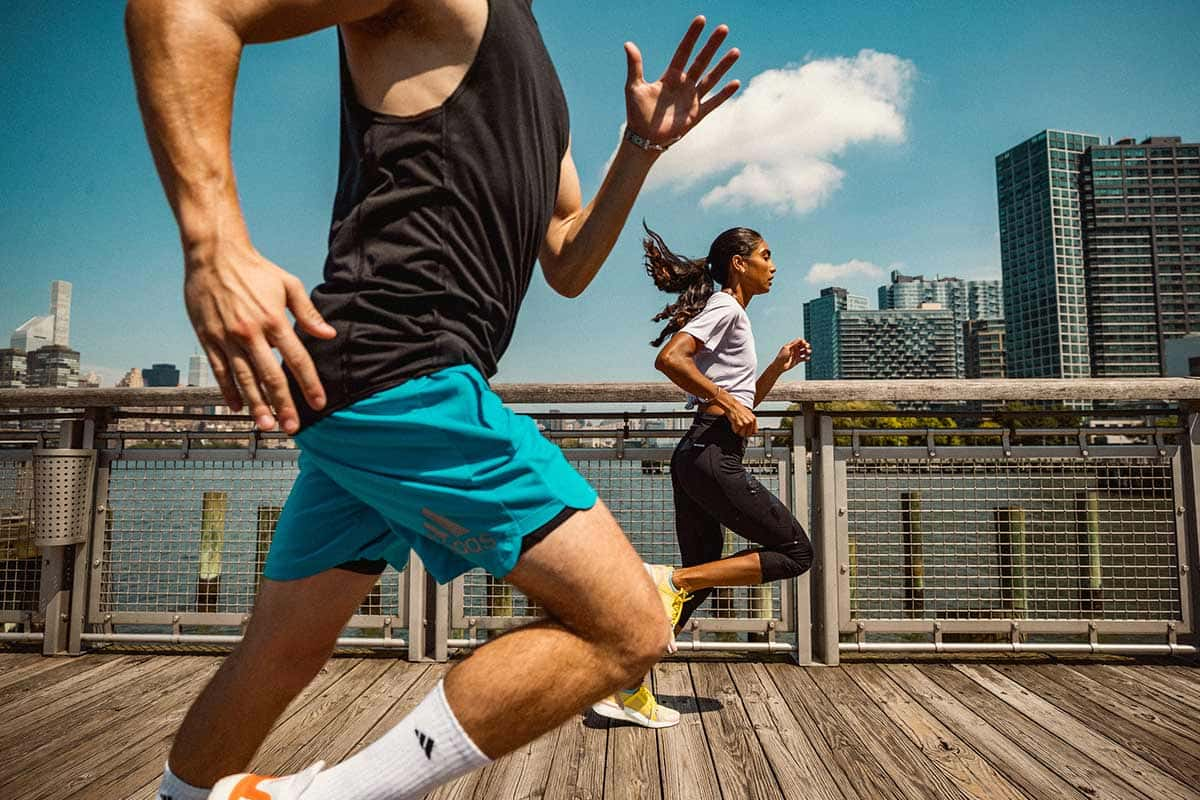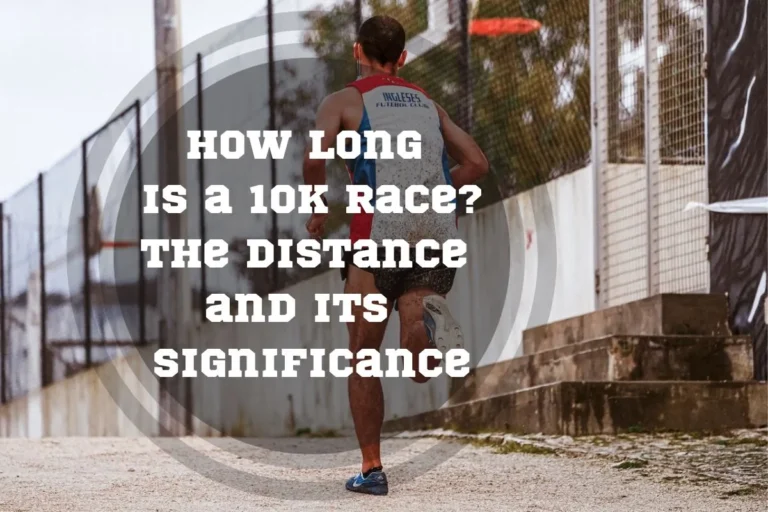Lose weight to run faster: The effect of body fat on running speed
Beginner racers frequently worry about whether they should be losing weight to run faster. It’s a well-known fact that carrying around extra weight can have negative effects on your health. Yet, did you realize that being overweight can also affect how well you run?
Carrying extra weight means that your body has to work harder to move – and that relates to your running too. One of the best things you can do to improve your running abilities is to concentrate on losing weight. In this article, we’ll explain how shedding those extra pounds can help you run faster and improve your overall fitness.
Always warm up before running the 10-minute mile. Complete a trial run first to determine your current pace. Continue practicing on a daily basis to improve your pace and hold it for longer. Don’t forget to include strength and core workouts into your routine to help your body reach this goal.
Does body weight affect running speed?
Weight loss and running speed are indirectly related. One rises as the other falls. Studies have shown that even a small amount of weight loss can have a significant impact on your running speed. So, how does losing weight make you faster? The answer lies in the laws of physics. The lighter you are, the less effort it takes to move your body through space. This means that you can run at the same speed with less effort – and that can lead to significant improvements in your running times.
How Does Mile Time Vary Based on Height and Weight?
It will be considerably more difficult for someone who weighs 200 pounds with a height of 6 ft but has 30 percent of body fat to run quicker than it will be for someone who weighs 200 pounds with a height of 6 ft but has only 12 percent of body fat.
For those of you who ask “will I run faster if I lose weight?”. The answer is yes, because the more muscle you have, the easier and more effectively you can propel yourself forward when running. With stronger quad and glute muscles, you’ll be able to exert more force at your toe-off and propel yourself forward more vigorously.
How The Body Region Of Mass Gain Affects Speed
The body region of mass gain is the amount of weight gained in a part of the body. The body regions include the legs, arms, and torso (thorax). When you gain weight in these areas it will slow down your running speed as well as other activities such as swimming or cycling.
You might also be curious as to why this occurs. It’s because when you gain weight, your muscles are unable to function at their maximum capacity and are compelled to preserve energy by slowing down their movement rate. As a result, there will be less speed if there is greater muscular mass involved.

On the contrary, just body weight isn’t the issue here, as even the weight of shoes can have adverse effects on the speed of racers. In such studies, losing weight to run faster was also implemented in the apparel you wore while running.
University research from Colorado discovered that wearing cushioned running shoes used less metabolic energy to run. The weight of the shoe would be increased by a respectable amount of cushioning, but the runner’s speed would increase because less power is needed. An ideal balance between the shoe’s weight and its cushioning advantages must be struck by the runner. For every athlete, this would presumably be different. The reality remains that lowering the same amount of body weight can have a considerably smaller impact on your running time than reducing the weight of your shoes.
Can You Be Too Thin To Run Fast

To run fast, you need a certain amount of body fat. If your body fat percentage is too low, it can be difficult for you to create enough energy and maintain your speed. This is especially true if you are running on the track or an uneven surface like grass or dirt. You may also feel tired more easily when running because there isn’t much oxygen going through your lungs with less muscle mass available for movement and exercise.
An overtraining syndrome is considerably more likely to affect a runner who is underweight. If you want to lose weight to perform better, it’s essential to engage with coaches, nutritionists, and your doctor.
Subscribe to Our Running Newsletter!
Get free running tips from renowned professional athletes and discounts from top-notch brands.
Just remember that it’s important not only how much weight loss occurs but also how quickly it happens so that there isn’t any impact on performance levels over time as well as safety concerns associated with increased risk factors such as dehydration due to lack drinking enough fluids throughout the day-long activity session (which could lead to unplanned exercise stops).
How Much Faster Can You Run If You Lose Weight
According to a study conducted in 1978, a 5 percent increase in body weight led to 89 fewer meters covered in 12 minutes of jogging. This results in an increase of 1.4 seconds in your mile time for each mile you run.
Although it might not seem like much, this can have a big impact on how well you perform across time and distance. In the best-case scenario, if you gain 5 percent body fat, your 10-mile race time will increase by 14 seconds. The results are the answer to how losing weight makes you faster.
A more recent study adopts a different strategy. They purportedly did not interfere with running mechanics by subtracting 5 or 10% of the runners’ body mass using an upward-pulling rope connected to a set of pulleys instead of adding weight to the runners.

It was discovered that in a series of 3k race trials, 11 volunteers improved on average by 3.1 and 5.2 percent depending on whether they were 5 or 10 percent lighter. This amounts to a 0.64 percent improvement in race time for every pound lost or 2.4 seconds for these runners (who were moving at a pace of roughly 6:00/mile).
What does “Ideal Running Weight” Mean?
The ideal running weight is the weight at which you will run most efficiently and be able to maintain your pace. It’s different for everyone, but here are some general guidelines:
- If you’re a novice: The initial weight should be light enough so that you may sit down or stand up without difficulty after a run.
- If you are an experienced runner: A runner who wants to enhance their efficiency and reduce injuries, the weight should be heavier than what they weighed before commencing training so that there is still enough body fat in place to cushion landings from leaps or other rapid movements during runs.
It’s a widespread misunderstanding to believe that you can lose weight fast by running. Running is a fantastic kind of exercise, but it doesn’t just help you lose weight. When it comes to losing weight, your diet is the most crucial factor.
Frequently Asked Questions About Unveiling the Influence of Excess Weight on Your Running Performance
Is running every day to lose weight a good idea?
If you think you can lose weight fast by running, then you are mistaken. Running regularly can help you maintain a calorie deficit, which may aid in weight loss. However, regular jogging can also raise your risk of injury. Moreover, an injury may hinder your efforts to lose weight or possibly do the opposite, leading to weight gain.
How many miles should you run a day to lose weight?
There is no magic number of miles you must run every day to lose weight. Don’t put too much emphasis on running because your age, gender, degree of fitness, health, and food will all be important factors in your weight loss. Certainly, running can help, but if you want to reduce weight permanently rather than just for a season, you’ll need to adopt a holistic strategy.
Will I run faster if I lose weight?
According to experts, for every pound you drop, you can run a mile in around two seconds faster. If you consider losing over 10 pounds and participating in long-distance events, that can add up quickly. There is a land of diminishing returns, though. To prevent injuries and illnesses that will entirely halt your growth as a runner, it’s crucial to maintain a good weight balance.
Conclusion: The Indirect Influence of Weight on Running Performance
To summarize the article, losing weight has an indirect impact on your running. The less you weigh the faster you can run. Even though it can be difficult to lose weight, especially if you don’t feel like exercising every day. But it is not impossible, so whenever you decide to start running, comment below, and let’s discuss the best strategies together.
Also read:
- How Many Miles Should I Run a Day
- Does Running Give You Abs
- 8 Minute Mile
- 5 Minute Mile
- 10 Minute Mile
- Why Do My Calves Hurt When I Run
- Does Running Make Your Butt Bigger
- Pool Running
- Running Shoes vs Sneakers
References:
- How Much Does an Extra Pound Slow You Down? // Runnersworld: https://www.runnersworld.com/nutrition-weight-loss/a20856066/how-much-does-an-extra-pound-slow-you-down/
- The best way to train to improve muscular endurance // MedicalNewsToday:https://www.medicalnewstoday.com/articles/muscular-endurance
- Effect of experimental alterations in excess weight on aerobic capacity and distance running performance // Pubmed: https://pubmed.ncbi.nlm.nih.gov/723510/
- A TEST OF THE METABOLIC COST OF CUSHIONING HYPOTHESIS IN SHOD AND UNSHOD RUNNING // Scholar: https://scholar.colorado.edu/downloads/nz806005t
- Metabolic cost of level, uphill, and downhill running in highly cushioned shoes with carbon-fiber plates // Sciencedirect: https://www.sciencedirect.com/science/article/pii/S2095254621001113
- Muscle Tone and Body Weight Predict Uphill Race Time in Amateur Trail Runners // Ncbi: https://www.ncbi.nlm.nih.gov/pmc/articles/PMC7922024/
If you have any questions or suggestions, you can contact us via email – [email protected]






